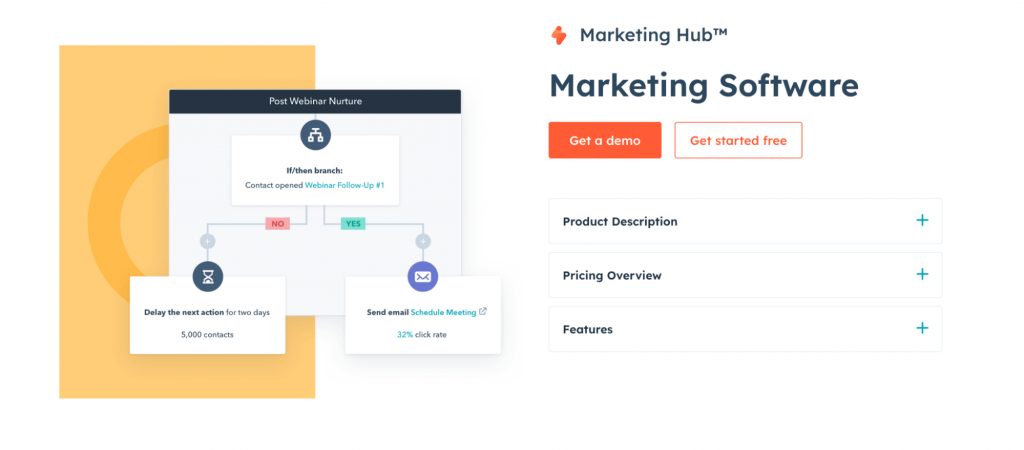Email marketing is vital for businesses today. It helps in reaching customers directly.
But which platform is the best? Choosing the right email marketing platform can be challenging. With so many options available, it’s crucial to find one that fits your needs. Some offer advanced analytics; others focus on ease of use. The best platform for you depends on your goals, budget, and technical skills.
This blog will guide you through key features of top platforms. By the end, you’ll have a clearer idea of which one suits your business best. Let’s explore the world of email marketing platforms together.

Credit: mailsend.com
Introduction To Email Marketing Platforms
Email marketing is a powerful tool for businesses. It helps in reaching out to customers directly. Choosing the right email marketing platform is crucial for success. Different platforms offer different features and benefits. This section will guide you through the basics of email marketing platforms.
Importance Of Email Marketing
Email marketing is essential for growing a business. It helps in building relationships with customers. Regular emails keep customers informed about new products and offers. It also helps in driving traffic to your website. Email marketing has a high return on investment (ROI). This makes it a cost-effective marketing strategy.
Criteria For Choosing A Platform
Choosing the right email marketing platform can be overwhelming. Here are some key criteria to consider:
- Ease of Use: The platform should have an easy-to-use interface.
- Features: Look for features like automation, templates, and analytics.
- Integration: Check if the platform integrates with your existing tools.
- Pricing: Compare the pricing plans to find one that fits your budget.
- Customer Support: Good customer support can help resolve issues quickly.
Here’s a quick comparison table of popular email marketing platforms:
| Platform | Ease of Use | Key Features | Integration | Pricing |
|---|---|---|---|---|
| Platform A | ★★★★☆ | Automation, Templates, Analytics | ★★★★☆ | $$$ |
| Platform B | ★★★☆☆ | Templates, Analytics | ★★★☆☆ | $$ |
| Platform C | ★★★★★ | Automation, Templates, Analytics, CRM | ★★★★★ | $$$$ |
Top Email Marketing Platforms
Choosing the right email marketing platform is crucial for your business growth. To help you decide, we have reviewed some of the top email marketing platforms. Let’s explore their features, advantages, and why they stand out in the crowded market.
Mailchimp
Mailchimp is one of the most popular email marketing platforms. It offers an easy-to-use interface and powerful tools.
- Drag-and-Drop Editor: Create beautiful emails without coding.
- Automation: Send personalized emails based on user behavior.
- Analytics: Track your email campaign performance.
Mailchimp also provides a free plan with limited features. It is a great option for small businesses.
Constant Contact
Constant Contact is another excellent email marketing platform. It is known for its reliable customer support and ease of use.
- Templates: Choose from a wide range of customizable templates.
- List Management: Easily manage your email lists and segments.
- Event Marketing: Promote and manage events with email campaigns.
Constant Contact offers a 60-day free trial. This allows you to test its features before committing.
Mailchimp Features And Benefits
Mailchimp stands out in the email marketing world with its powerful features and user-friendly interface. Understanding its capabilities can help businesses make informed decisions about their email marketing strategy.
User Interface
Mailchimp offers an intuitive user interface. Even beginners can navigate it easily. The dashboard is clean and organized. You can quickly access campaigns, audience data, and reports.
The drag-and-drop email builder simplifies the email creation process. Customizing templates becomes effortless. You can add images, text, and buttons with just a few clicks.
Mailchimp’s mobile app ensures you can manage your campaigns on the go. Whether you’re at your desk or traveling, you have full control.
Automation Capabilities
Automation is one of Mailchimp’s strongest features. It allows you to set up automated email sequences. These can be triggered by user actions, such as sign-ups or purchases.
With Mailchimp, you can create personalized customer journeys. Tailor your messages based on user behavior. This ensures your emails are relevant and timely.
Advanced segmentation options are available. Segment your audience by various criteria, like purchase history or engagement level. This helps in sending targeted campaigns.
Mailchimp also offers pre-built automation templates. These templates save time and effort. Choose from a variety of workflows, like welcome series or abandoned cart emails.
| Feature | Benefit |
|---|---|
| User Interface | Easy to navigate and use |
| Drag-and-Drop Builder | Simplifies email creation |
| Mobile App | Manage campaigns on the go |
| Automation | Set up email sequences based on user actions |
| Customer Journeys | Personalize messages based on user behavior |
| Segmentation | Target specific audience groups |
| Automation Templates | Save time with pre-built workflows |
Constant Contact Features And Benefits
Constant Contact is one of the best email marketing platforms. It offers many features and benefits. Let us explore its key features and understand why it stands out.
Ease Of Use
Constant Contact is very user-friendly. It has an intuitive drag-and-drop editor. You can easily create professional emails. No coding skills are needed. The platform offers many templates. These templates are customizable. You can add images, text, and links with ease. The interface is clean and simple. This makes navigation easy, even for beginners.
Customer Support
Constant Contact provides excellent customer support. They offer phone support, live chat, and email support. Their support team is knowledgeable and responsive. They also provide a comprehensive help center. The help center includes guides, tutorials, and FAQs. There are also webinars and training sessions. These resources help users get the most out of the platform.
| Feature | Benefit |
|---|---|
| Drag-and-Drop Editor | Create emails easily without coding |
| Customizable Templates | Personalize emails to fit your brand |
| Phone Support | Get help quickly with any issues |
| Live Chat | Instant support for immediate questions |
| Help Center | Access guides, tutorials, and FAQs |
- Ease of Use: Intuitive and simple to navigate.
- Customer Support: Reliable and responsive assistance.
Comparing Pricing Models
Choosing the right email marketing platform involves comparing pricing models. Different platforms offer various pricing structures. This helps businesses of all sizes find a suitable plan. Let’s look at the pricing for two popular platforms: Mailchimp and Constant Contact.
Mailchimp Pricing
Mailchimp offers a range of pricing plans. This flexibility makes it appealing to many users. Below is a breakdown of their main plans:
- Free Plan: $0/month – Up to 2,000 contacts and 10,000 emails per month. Basic features included.
- Essentials Plan: Starting at $9.99/month – Includes more templates and A/B testing.
- Standard Plan: Starting at $14.99/month – Adds automation and advanced audience insights.
- Premium Plan: Starting at $299/month – Includes advanced segmentation and unlimited audiences.
Mailchimp also offers a pay-as-you-go option. This can be useful for businesses that send emails less frequently.
Constant Contact Pricing
Constant Contact offers two main pricing plans. These plans are based on the number of contacts:
- Email Plan: Starts at $20/month for up to 500 contacts. It includes unlimited emails and basic features.
- Email Plus Plan: Starts at $45/month for up to 500 contacts. This plan adds advanced features like automation, surveys, and event marketing.
Both plans increase in price as your contact list grows. Constant Contact also offers a 30-day free trial. This allows users to test their services before committing.
Choosing between Mailchimp and Constant Contact depends on your specific needs. Consider the pricing and features that align with your goals.
User Experience And Customer Reviews
Choosing the best email marketing platform involves considering user experience and customer reviews. These insights help understand how the platform performs in real-world scenarios. User feedback highlights the strengths and weaknesses, making it easier to make an informed decision.
Mailchimp User Feedback
Mailchimp is a popular choice due to its ease of use and intuitive interface. Many users appreciate the simple drag-and-drop editor. It allows them to create professional emails without coding skills.
Here are some common points highlighted by users:
- Friendly and clean interface
- Comprehensive support and tutorials
- Effective A/B testing tools
- Good integration options with other apps
Pros:
- User-friendly interface
- Great customer support
- Robust features
Cons:
- Higher pricing for advanced features
- Limited template customization
Constant Contact User Feedback
Constant Contact is praised for its reliable service and strong customer support. Users find it easy to navigate and set up their campaigns quickly. The platform offers a variety of templates that help users get started faster.
Here are some common points highlighted by users:
- Reliable delivery rates
- Responsive customer service
- Extensive template library
- Useful reporting tools
Pros:
- Easy to use
- Excellent customer service
- Wide range of templates
Cons:
- Fewer advanced automation options
- Higher cost for added users
Integration With Other Tools
Integration with Other Tools is a crucial feature for any email marketing platform. Seamless integrations can improve workflow, save time, and enhance productivity. Let’s examine how Mailchimp and Constant Contact perform in this area.
Mailchimp Integrations
Mailchimp offers a wide range of integrations, making it versatile for many businesses. It connects with popular tools like:
- Shopify – Sync your store data to target customers effectively.
- WordPress – Embed subscription forms easily on your website.
- Google Analytics – Track campaign performance directly.
Mailchimp also supports integrations with social media platforms:
- Facebook – Manage ads and collect leads.
- Instagram – Promote products directly from posts.
These integrations allow you to manage email campaigns, social ads, and customer data from one platform. This reduces the need to switch between multiple tools, increasing efficiency.
Constant Contact Integrations
Constant Contact also provides robust integration capabilities. It works well with various tools, including:
- Eventbrite – Manage event registrations directly.
- QuickBooks – Sync customer data for better insights.
- Salesforce – Integrate CRM data for targeted campaigns.
It also connects with e-commerce platforms:
- WooCommerce – Sync store data and automate emails.
- Shopify – Manage customer data and marketing.
These integrations help businesses streamline their marketing efforts. They provide a unified view of customer interactions across different platforms.
Both Mailchimp and Constant Contact offer extensive integration options. Choosing the right platform depends on your specific needs and existing tools. The ability to integrate with other tools can greatly enhance your email marketing efforts.

Credit: useinsider.com
Expert Recommendations
Choosing the best email marketing platform can be challenging. Experts recommend different platforms based on the business size and needs. Let’s dive into their top picks.
Best For Small Businesses
Small businesses need affordable and easy-to-use tools. Experts suggest Mailchimp for small businesses. It offers a free plan for up to 2,000 subscribers. This helps small businesses get started without a budget strain.
Mailchimp’s drag-and-drop editor is user-friendly. No coding skills are required. This allows small business owners to create professional emails quickly. Mailchimp also offers helpful analytics. These insights can guide your email marketing strategy.
| Feature | Mailchimp |
|---|---|
| Free Plan | Yes, up to 2,000 subscribers |
| Drag-and-Drop Editor | Yes |
| Analytics | Yes |
Best For Large Enterprises
Large enterprises need advanced features and scalability. Experts recommend HubSpot for larger companies. HubSpot offers powerful automation and CRM integration. This makes managing large lists and complex campaigns easier.
HubSpot’s segmentation tools are robust. They allow for targeted and personalized emails. Large enterprises benefit from detailed analytics. These help refine and optimize campaigns for better results.
| Feature | HubSpot |
|---|---|
| Automation | Yes |
| CRM Integration | Yes |
| Segmentation | Yes |
| Detailed Analytics | Yes |
Frequently Asked Questions
What Features Should An Email Marketing Platform Have?
An email marketing platform should have automation, segmentation, and analytics features. It should also offer customizable templates and integration with other tools.
Which Email Marketing Platform Is Best For Small Businesses?
Mailchimp is popular among small businesses. It offers user-friendly interfaces, comprehensive features, and affordable pricing plans.
Are There Free Email Marketing Platforms Available?
Yes, many platforms offer free plans. Mailchimp, Sendinblue, and MailerLite provide free tiers with limited features.
How Can I Improve My Email Marketing Campaigns?
Use segmentation to target specific audiences. Personalize emails and analyze performance metrics to optimize future campaigns.
Conclusion
Choosing the best email marketing platform depends on your needs. Each platform offers unique features. Consider your budget and goals. Evaluate ease of use and customer support. Take advantage of free trials. This helps you find the right fit. Remember, the best platform boosts your email marketing success.
So, take your time to research. Select a platform that aligns with your objectives. This ensures effective email campaigns. Happy emailing!




